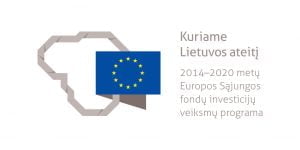Project Nr. 01.2.2-LMT-K-718-02-0019
Project Nr. 01.2.2-LMT-K-718-02-0019
Project duration 2018 11 – 2021 10
Project is implemented under funding of European Regional Development Fund.

The idea of the project is based on platforms that enable insights into the future of big data. One of the key aspects of technological change is the economic benefits and productivity generated by the platform. Platforms have different scales. Some of them operate on a small scale and others on a large scale. New technologies offer new opportunities to expand the scale of platforms. Choudary (2015) presents five essential elements of platforms: (1) data, (2) infrastructure, (3) community, (4) market players, and (5) network market. The chosen platform structure, new technologies provide many new choices and opportunities. The research ideas are based on three themes: (1) Open Innovation and Social Behavior Research (Crowdsourcing), (2) E-Commerce, and (3) Matching Platforms. The first topic is widely applied today to SMEs and large corporations. There is a need to analyze these topics and integrate them with digital platforms and the processing of big data resources.
Project aim to create new type digital Big Data platforms that allow us create, organize and use digital content for economic and social wellbeing of society using new methods joining Big Data and Future Foresight methodologies.
Project SMART specialisation area: Inclusive and creative society, Technologies and processes for the development and implementation of break-through innovations.
Project will develop:
Research leader prof. Jari Kaivo-oja.
Principal researchers: prof. Arūnas Augustinaitis, prof. Steffen Roth, dr. Theresa Lauraeus, dr. Mathew Ferns Mathew, dr. Austė Kiškienė, Darius Verbyla ir Mikkel Knudsen.
Scientific results created during the project:
Kaivo-oja, J., Vehmas, J. and Luukkanen, J. (2020) Anticipating future trends of the energy transition. Multi-level dynamics in policy agenda setting. Chapter 10. Aalto, P. (Ed. ) Electrification: Accelerated Transition to Climate Neutrality.
Kaivo-oja, J., Lauraéus, T. and Knudsen, Mikkel Stein (2020) Picking the ICT Technology Winners – Longitudinal Analysis of 21st Century Technologies on The Basis of the Gartner Hype Cycle 2008–2017: Trends, Tendencies and Weak Signals. International Journal of Web Engineering and Technology. Accepted. In press.
Kaivo-oja, J. and Lauréaus, Theresa (2020) Towards Data Driven Smart Specialisation Strategy of the Lithuanian Economy. Large Trend Data Lakes Analytics of the Lithuanian Economy. Strategically Focused Export and Import Perspectives with Lauréaus-Kaivo-oja Market Resilience Index. Manuscript. Unpublished.
Santonen, T. and Kaivo-oja, J. (2020) Crowdsourcing Delphi – Combine the best of both worlds for futures-oriented technology analysis and foresight research. Technology Analysis and Management. In review process.
Maavak, M (2021). Horizon 2020-2030: Will Emerging Risks Unravel our Global Systems? Accepted by Salus Journal for 2021 April issue
More information on the project results available at https://bigdataexcellence.com/